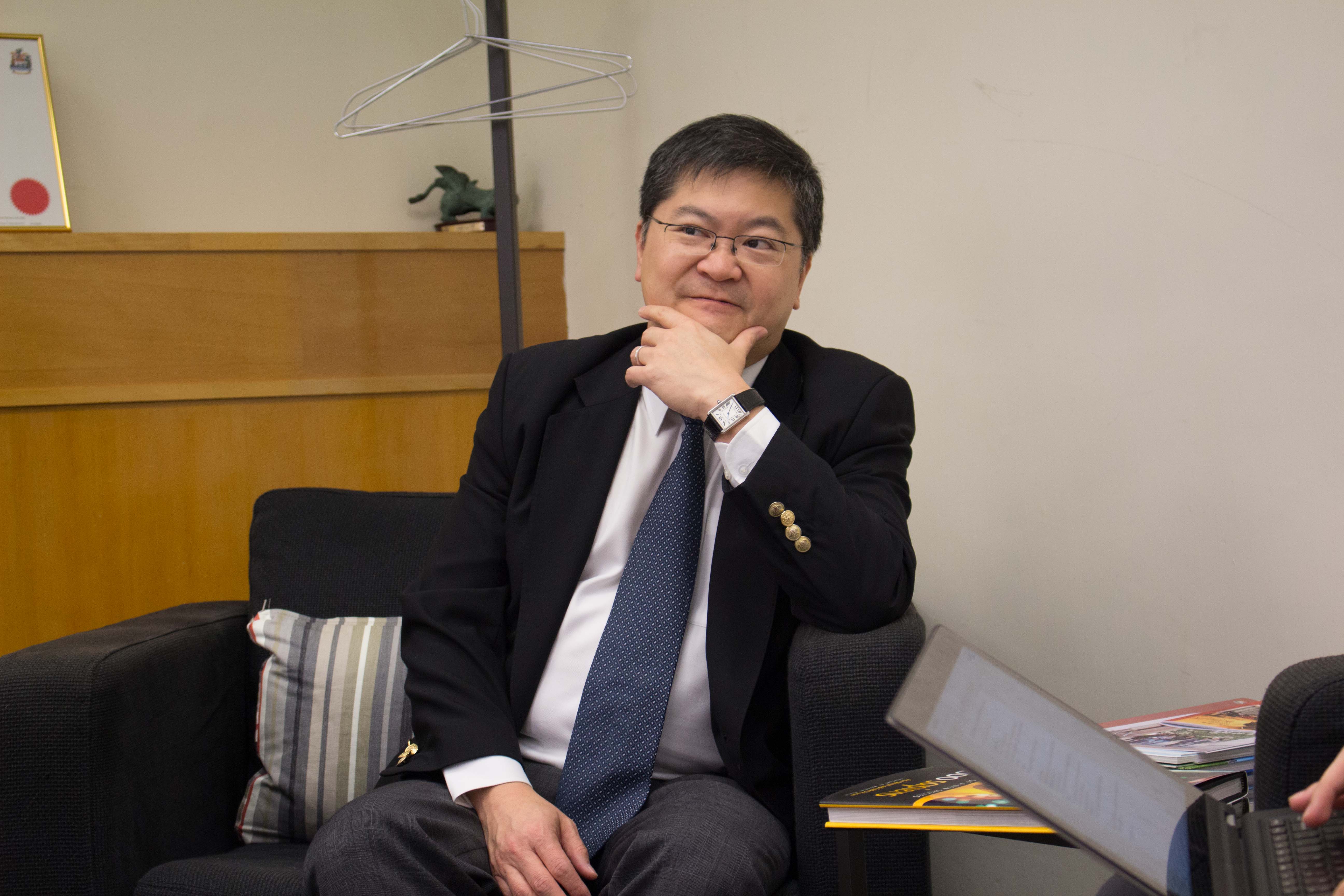by Sundararaja N. Valiyapan | Interviewer: Sundararaja N. Valiyapan and Donald Lam | Photo Credits: Kevin Cureau | 2 December 2013
Robotics is now attracting more and more attention from research centers, the consumer, industrial and manufacturing sectors worldwide. Identified by the Faculty of Engineering as one of the key emerging technology areas, HKU is seeking to play a larger role in this field.
We interviewed our Dean of Engineering, Professor Norman C. Tien to learn more about the university’s push to make robotics the next big thing in Hong Kong.
Furthermore, check out the extraordinary tale of Prof. Tien’s Startups, his mentor, and the vision he shares for HKU students in Up Close and Personal with Prof. Tien.
The First Step
Under the leadership of Professor Tien, the Advanced Robotics Initiative (ARI) was launched by the university, with the goal to become a world-class player and Asian leader in the area of robotics.
Currently, the ARI robotics team is working on a humanoid robot called Atlas.This coming December, the team will participate in a robotics challenge, initiated in response to the Fukushima nuclear crisis by the US Defense Advanced Research Projects Agency (DARPA), for a USD 2 million cash price.
 In Conversation with Prof. Tien in his office
In Conversation with Prof. Tien in his office
Research and development in pursuit of this competition will help HKU produce cutting-edge software technologies in machine control, computational intelligence and human/machine interfaces. Application areas include industrial automation, medical applications, disaster response technology and hazardous operations.
“Atlas is only the starting point.” said Prof. Tien. The success of the ARI will put the university front and centre in the world robotics. Through this project, HKU has also built collaborative relationships with other world-leading institutions and pioneers such as Case, Tokyo and Edinburgh, contributing to the innovation of robotics in the world. Ultimately, the ARI will change the technological landscape of Hong Kong.
More Corporate Interest
“The local government supported technology quite well and there has been a lot of money put in to it.” said Prof. Tien, “If anything, I think the problem in Hong Kong is more that, in terms of innovation, technology, research and development, too much of it is from the government, the percentage is too high.”
“The business side and the corporations need to do more, they need to participate more.” He feels that while the great government support has been most helpful in kickstarting the research and development (R&D) scene, direct participation from private companies and the industry is even more important.
Most of the R&D being done in Hong Kong and by the universities in Hong Kong is too dependent on government funding. Meanwhile in countries like the US, universities receive funding from corporations.
Therefore, the fact that the HKU Atlas ARI program is largely funded by private donors is rather groundbreaking.
A New Industry
“To have your economic prosperity linked to one or two industry, is a risk. Logistics and trade is still large in Hong Kong but it’s slipping… Finance is still preeminent in this region. If you look at the economic base in HK, you need to diversify.”
Universities in Hong Kong are not giving R&D in areas of engineering or science enough priority. Advancements in these areas have been comparatively underwhelming. Companies tend to depend on universities in the US or Europe which has more established R&D programs.
Prof. Tien explained that there is always a time in the development of any society where there is a boom in the number of people and resources going into other academic areas, but he is positive that the trend is reversing as we speak.
“I think the global economic crisis has ‘helped’. It made people think, I won’t be able to do well in the finance industry.”
“It’s natural from the engineering point of view to push for the technology sector… The economic wealth created around the world has so much been because of different technologies that come by.”
Through the development of robotics technology, either through software engineering or hardware and design innovations, Hong Kong will be able to attract more manufacturing and technology companies to invest and become a mini Silicon Valley of Asia.
This reduces the dependence on the finance and banking industry while generating greater economic output for Hong Kong.


